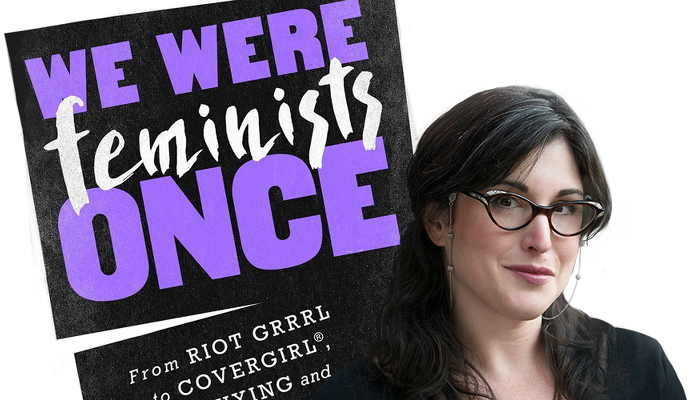Feminism has long been a movement about affecting large-scale change for a variety of women, but Zeisler convincingly shows throughout We Were Feminists Once that today’s marketed—and marketable—feminism has been coopted and sold back to women as a “movement” that emphasizes individual choices instead of collective action. Feminism has been turned into something that an individual woman is instead of actions that she takes working with other women; mirroring larger shifts in the American cultural landscape, this new corporatized feminism is now about what one buys, what one wears, and overall how an individual or corporation can appear more “feminist” without actually doing anything to engender change.

As Zeisler sums up in the book’s introduction, “The fight for gender equality has transmogrified from a collective goal to a consumer brand.” She elucidates in the pages that follow that such a move away from collective political action and toward mainstream acceptance—in addition to watering down feminism—has also had the unfortunate effect of giving the short shrift to actual feminist issues that are still unresolved; oftentimes, much attention is given to clickbait-y debates and think pieces that go back and forth on whether wearing or not wearing something (high heels and thongs, for example), watching a TV show, or supporting/not supporting a pop culture hit can be considered “really feminist.”
While it’s unrealistic to expect corporations to get involved in many of these unresolved feminist issues—among them persistent racial inequality, the wage gap, reproductive rights, paid parental leave, health care access, the exclusion of certain women (trans women, women with disabilities, and working-class women, among others) from the feminist movement, and lots more—it is not unrealistic to expect that people who call themselves feminists will want to put in the time and effort to resolve these issues.
We Were Feminists Once makes a compelling, thoroughly researched case for pushing back against the tide of marketplace-friendly feminism; Zeisler engagingly contends throughout that when it comes to pop culture’s current—albeit mostly positive—depictions of feminism, such surface-level engagement on the part of both culture and corporations leaves much to be desired.
Photo via Bitch Magazine.

